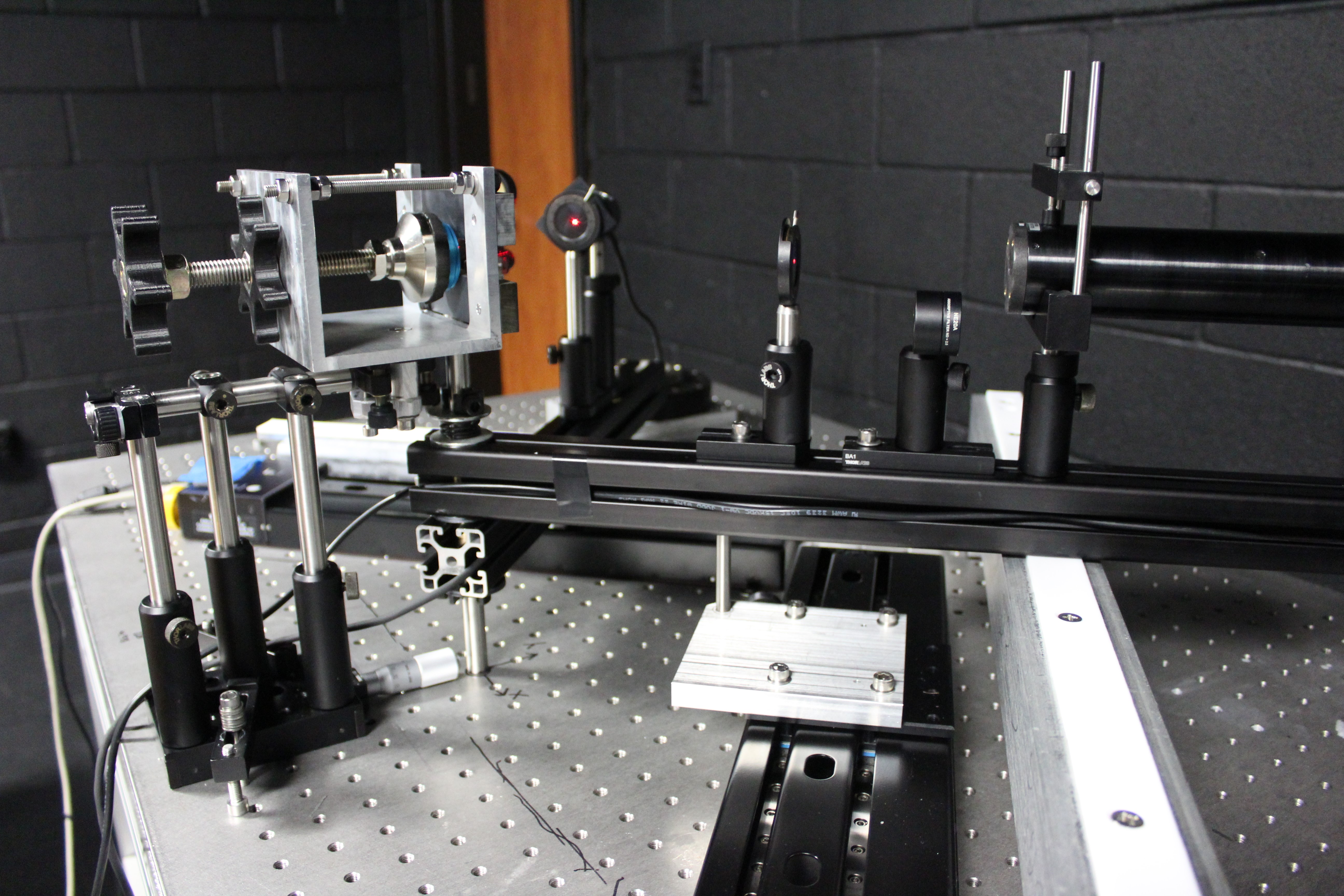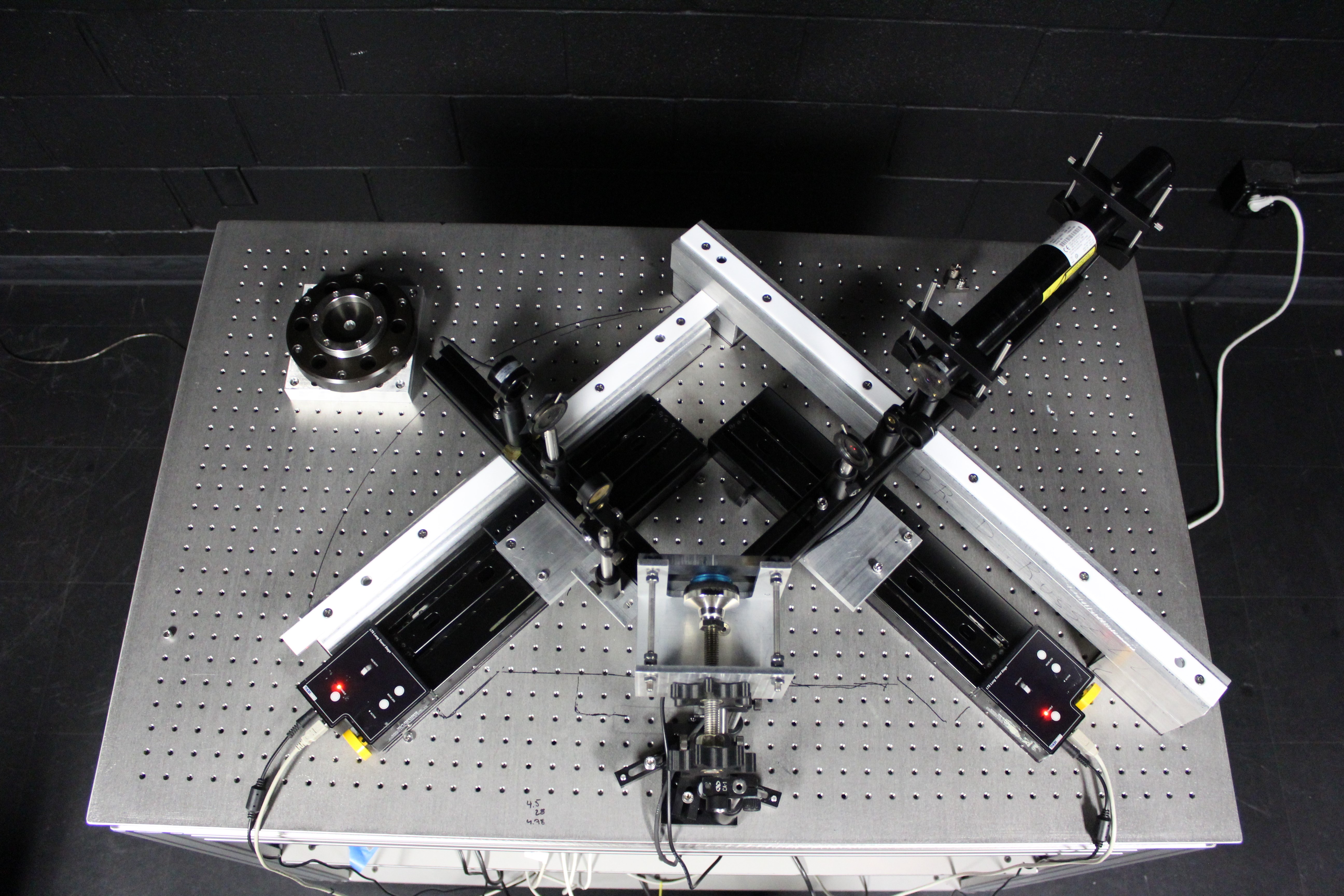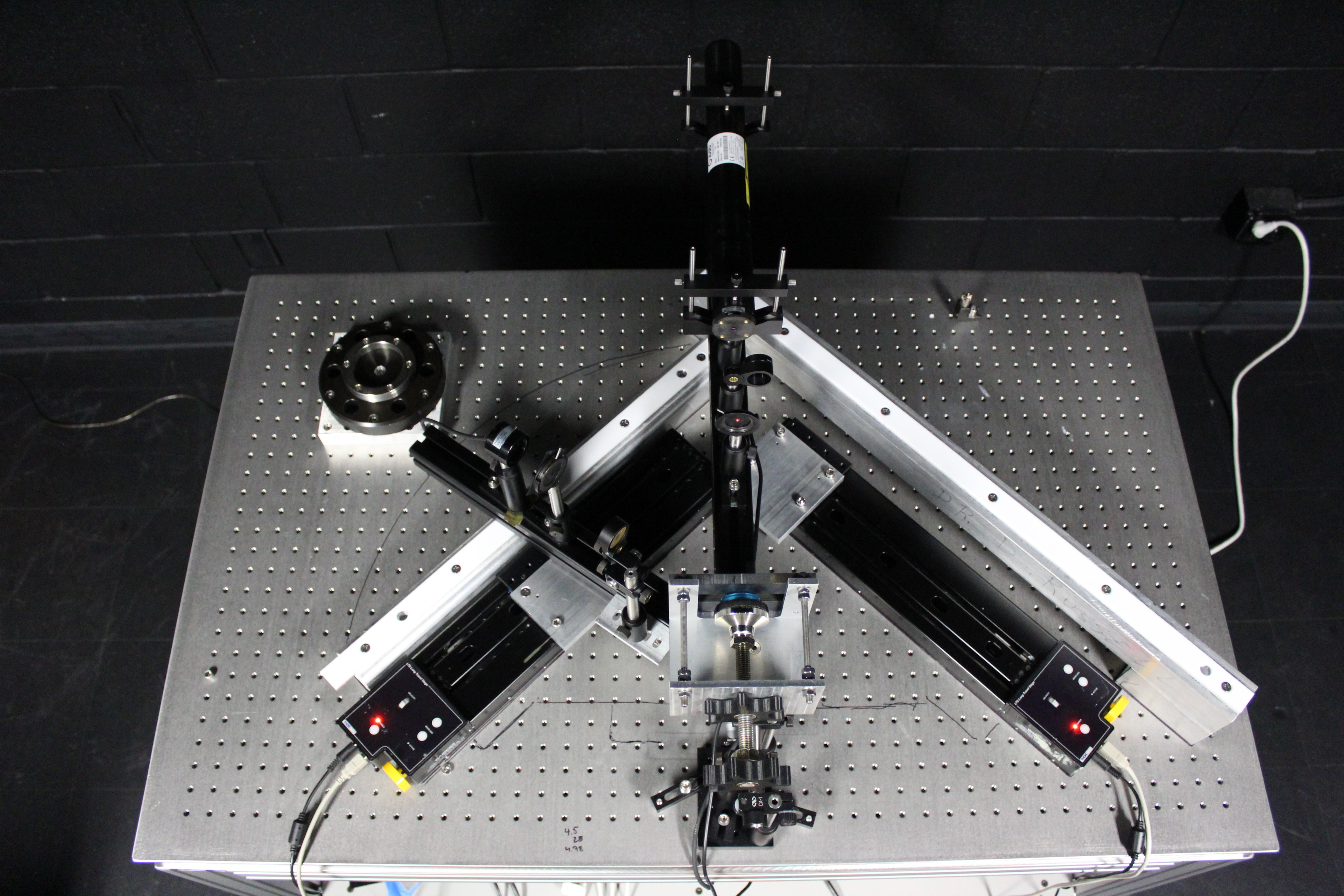MADLaSR
We have designed and built a device capable of measuring both the specular reflectivity of black materials, as well as the Lambertian reflectivity of white materials over their full range of incident and observed angles, respectively. The MADLaSR (Multi-Angle Detection of Lambertian and Specular Reflectivity) is a device designed for specular reflectivity testing in the range of 10° < θ < 170° and for Lambertian reflectivity testing in the range of 10° < θ < 85°. Here, we will describe the design and functionality of the MADLaSR.

Specular Reflectance
When testing for specular reflectivity, the laser and the sensor are moved to different positions symmetrically with respect to the central axis as defined by their pivot rod. An example of this setup is shown below. By positioning iris diaphragms in front of both the laser and sensor, the diffuse scattering of the laser beam is minimized to ensure that we are measuring solely the specular reflection.

Lambertian Reflectivity Testing
When testing for Lambertian reflectivity, the laser must be positioned perpendicular to the surface of the material while the sensor is moved to different angles. This setup, as shown below, is designed to test for constant apparent surface brightness regardless of the angle of observation.

Data Analysis
- Running these test programs produces .csv data files, which contain the range of angles and the corresponding power readings. Each file contains the reference sample’s data as well as that of a test sample.
- This data is then plotted and the reflectivity properties of our samples are easily compared.
Publications
MADLaSR: multi-angle detector of Lambertian and specular reflectivity
Gardner, Lawrence E.; Prochaska, Travis; Schmidt, Luke M.; Marshall, Jennifer L.; Sauseda, Marcus; Torregosa, Michael; and DePoy, Darren L.. In Proc.SPIE, 10706–166, 2018.
(PDF) (Poster)
